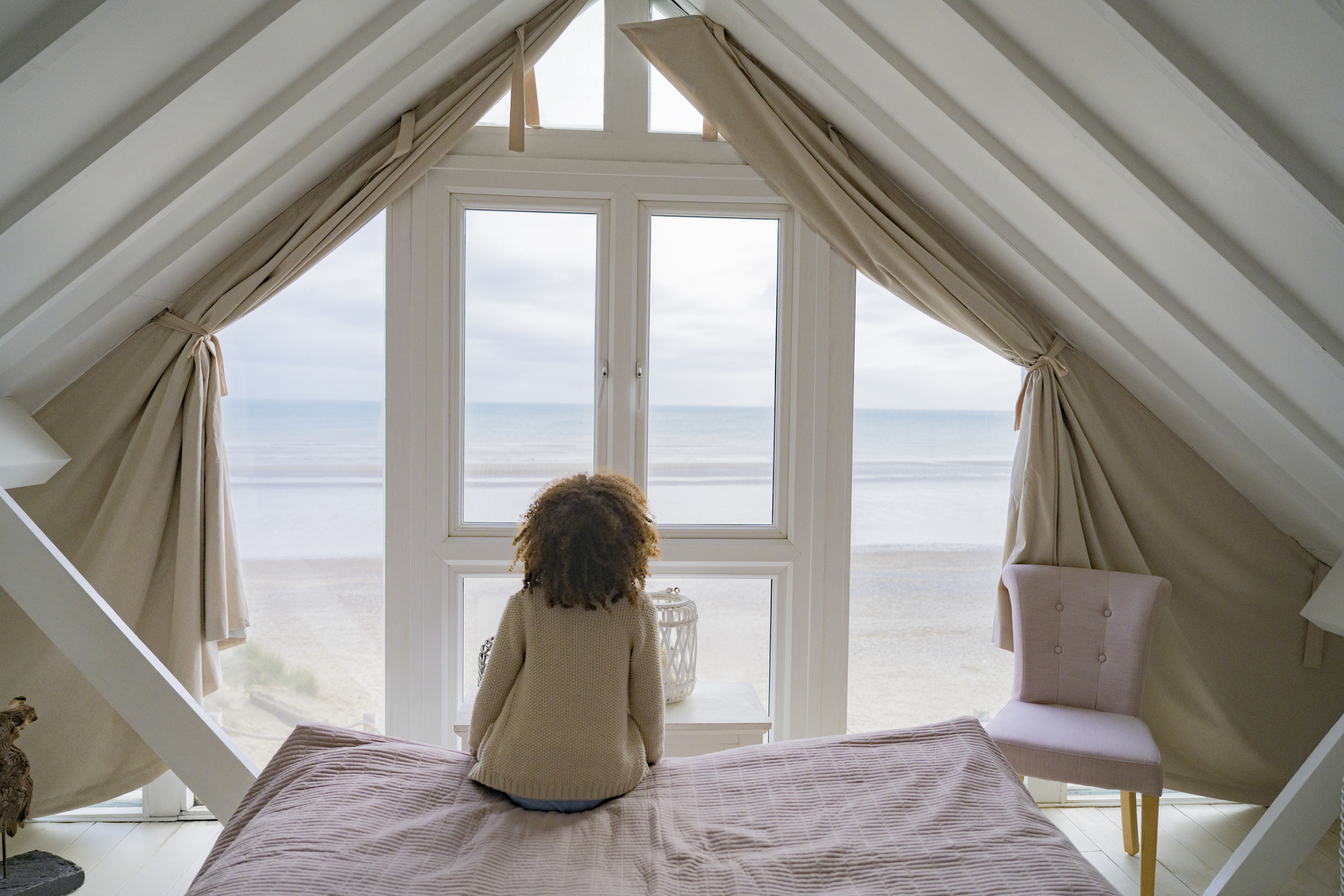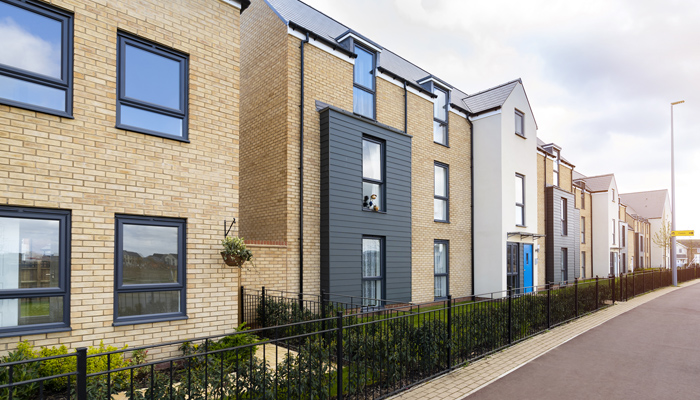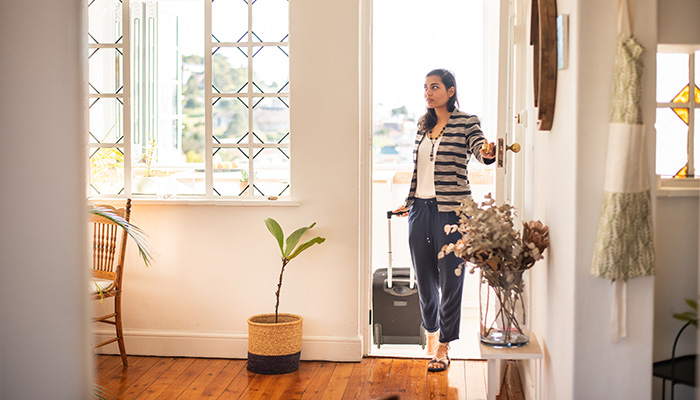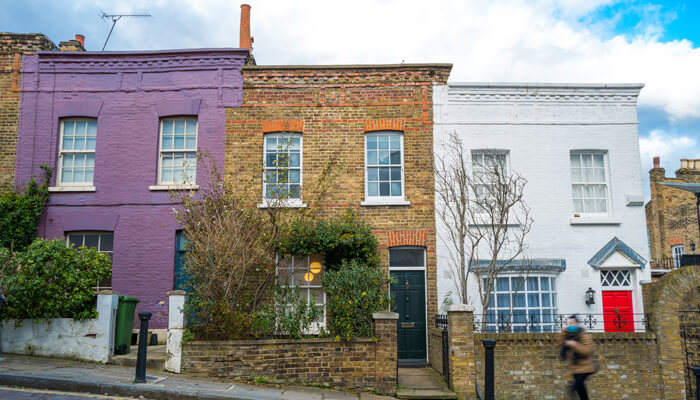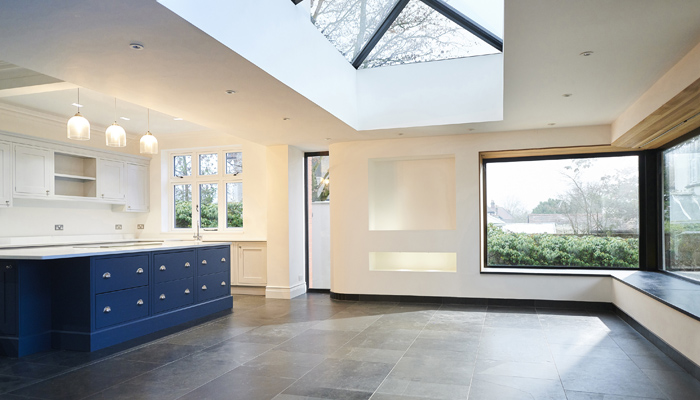Does Your Insurance Increase for a Holiday Home?
When you love a place, owning a holiday home there is one of the best ways to express that love. However, whether it’s a property that you keep for yourself, share with friends and family, or rent to guests, a holiday home often comes with additional considerations and costs.
If you’re looking to own one, you might be wondering: does your insurance increase for a holiday home? In this guide, we’ll break down the risks that come with ownership, how to manage them and how to keep premiums down.
Why holiday home insurance may be more expensive
Holiday home insurance is typically more expensive than standard home insurance for a few key reasons:
Unoccupancy
Because holiday homes are left empty during certain periods in the year, the risk of break-ins, vandalism or undetected water leaks is higher. Insurance providers will see this as a higher risk than a typically occupied home and increase the premium to reflect this risk.
Rentals
If you rent out your holiday home, you owe a legal duty of care for the health, safety and welfare to your guests. Accordingly, insurers typically charge higher premiums due to the potential for allegations of accidental bodily injury caused to them, or damage to their property for which you may be held responsible.
Location
Depending on where your holiday home is, the location might bring with it risks of its own. Coastal properties could be exposed to a higher risk of flooding, and remote homes might face higher crime rates or be more vulnerable to violent weather, characterised by high winds, heavy rainfall, snow, or hail.
Factors that influence the cost of holiday home insurance
There are a whole host of factors that influence the cost of holiday home insurance. Understanding these can help you plan to reduce potentially expensive premiums.
Occupancy
Properties left unoccupied for extended periods are at a higher risk of damage or theft — resulting in higher premiums. The more often the home is used, the lower this risk factor becomes.
Rentals
Letting the property to guests might bring with it the potential increased risks of damage and liability. This is taken into account by insurance providers and might result in higher premiums.
Security
Installing security features like alarms, CCTV and good quality locks can lower premiums by reducing the risk of break-ins or vandalism. Many insurers will specify a minimum level of physical security is in place as a requirement.
Condition
You should ensure your property’s sums insured are based on up-to-date rebuilding costs and a professional valuation is recommended.
Rental income and its impact on insurance premiums
When you rent out a holiday home, it can give you a helpful source of income throughout the year — however, it can impact insurance premiums. Unlike long-term rentals, where you grow a relationship with your tenant, holidayers might have less respect for the property, posing higher risks of liability and damage. You should check the cover available as some policies can include accidental damage caused by guests. Please be aware that general wear and tear will not be covered by insurance.
Because of these factors, many insurers require specific holiday home or landlord insurance policies that cover rental activities and potential guest-related liabilities.
How to reduce holiday home insurance premiums
Thankfully, there are a range of ways you can keep those expensive premiums down and sometimes improve the overall safety of your holiday home along the way.
Security
Security measures like alarms, cameras and good quality locks can help reduce theft and vandalism, leading to lower premiums.
Insurance
The majority of holiday home policies provide cover on a package basis, eliminating the need to buy separate property and liability insurances which could be more expensive if arranged on a standalone basis. Be sure to ask your provider if this is the case.
Comparisons
By using comparison websites or by doing research of your own, you should be able to find the best price possible for your holiday home insurance.
Does having a holiday home affect your primary home insurance?
Owning a holiday home usually won’t affect the insurance premiums for your primary residence. However, it’s essential to coordinate with your insurance providers to confirm that both properties have the appropriate policies in place and that any specific cover needs are fully addressed.
What covers can you include in holiday home insurance?
Here are a few of the more common covers for holiday home insurance:
Public liability insurance
If you rent out your holiday home, public liability insurance can protect you from the costs to defend legal claims if a guest alleges accidental personal injury or their property is damaged during their stay.
Accidental damage coverage
For rental properties, accidental damage coverage is a must as it protects against unintentional damage caused by guests. It’s important to check that this cover is included, as it may not be a standard inclusion.
Loss of rental income
This cover protects against income loss if the property becomes uninhabitable due to damage caused by an insured peril such as fire.
Unoccupied property cover
If your holiday home is left empty for extended periods, additional cover for unoccupied property may be required. This coverage protects against the unique risks associated with unoccupied properties, though it comes with an added cost. Additional cover for unoccupied property may be required. This coverage protects against the unique risks associated with unoccupied properties, though it comes with an added cost.
Holiday home insurance from Towergate
While holiday home insurance tends to be more expensive than standard home insurance, it is important that you arrange adequate cover to ensure that you are protected. The exact costs depend on how risky it is to insure your property. By understanding these risks and taking steps to reduce them, you can better manage the costs associated with the coverage.
Get a holiday home insurance quote
If you’re considering holiday home insurance, our experts at Towergate can get you a quote that will suit your specific needs. It's quick and easy to get a holiday home insurance quote online or by calling us on 0345 266 8561.
About the author
James Cooper is a respected industry leader with around 10 years' experience in the home and property insurance sector. He works across a broad range of insurance product and policy development and delivery, including product development; customer sales and marketing; and P&L accountability.
Consistent with our policy when giving comment and advice on a non-specific basis, we cannot assume legal responsibility for the accuracy of any particular statement. In the case of specific problems we recommend that professional advice be sought.
Date: May 12, 2025
Category: Home and Property




